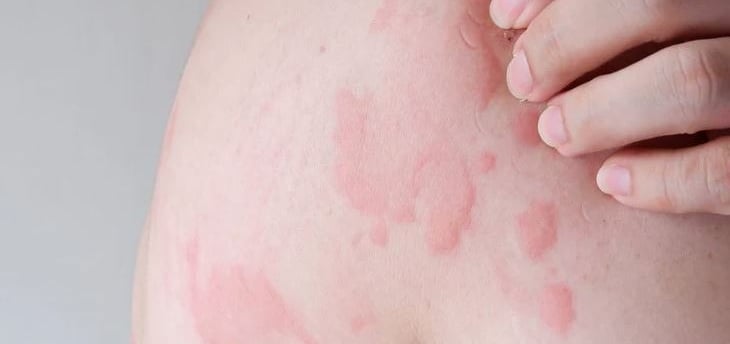Understanding Urticaria: Causes and Treatment
"Explore urticaria: its causes and treatment options. Learn how to manage and alleviate symptoms of this common skin condition for better health and well-being."


Introduction
Urticaria, commonly known as hives, is a skin condition characterized by itchy, raised welts on the skin. These welts can vary in size and shape and often appear in clusters. Urticaria can be acute or chronic, with the former lasting for a few hours to a few weeks, and the latter persisting for more than six weeks.
Causes
Urticaria can be triggered by various factors, including:
Allergies: Allergic reactions to certain foods, medications, insect bites, or environmental factors like pollen or pet dander can lead to urticaria.
Infections: Viral or bacterial infections, such as the common cold or urinary tract infections, can cause hives.
Autoimmune disorders: Conditions like lupus, rheumatoid arthritis, or thyroid disorders can contribute to chronic urticaria.
Physical triggers: Exposure to heat, cold, pressure, sunlight, or exercise can induce hives in some individuals.
Stress: Emotional stress or anxiety can exacerbate urticaria symptoms.
Treatment
The treatment of urticaria aims to relieve symptoms and prevent future outbreaks. It typically involves a combination of medication and lifestyle changes. Here are some common approaches:
1. Antihistamines
Antihistamines are the primary treatment for urticaria. They work by blocking the effects of histamine, a chemical released during an allergic reaction. Non-drowsy antihistamines are usually recommended for daytime use, while sedating antihistamines may be prescribed for nighttime relief.
2. Corticosteroids
In severe cases or when antihistamines alone are ineffective, corticosteroids may be prescribed to reduce inflammation and relieve symptoms. However, long-term use of corticosteroids is generally avoided due to potential side effects.
3. Avoiding Triggers
Identifying and avoiding triggers can help prevent recurrent episodes of urticaria. Keeping a diary to track potential triggers and seeking medical advice can be beneficial in managing the condition effectively.
4. Stress Management
Since stress can worsen urticaria symptoms, practicing relaxation techniques such as yoga, meditation, or deep breathing exercises may help alleviate stress and minimize flare-ups.
5. Cold Compresses
Applying cold compresses or taking cool showers can provide temporary relief from itching and soothe the skin during an acute episode of urticaria.
6. Prescription Medications
In some cases, when other treatments fail to provide relief, a dermatologist may prescribe alternative medications such as Omalizumab or cyclosporine. These medications are typically used for chronic urticaria and require close monitoring.
Conclusion
Urticaria can be an uncomfortable and distressing skin condition, but with proper management and treatment, it is possible to control symptoms and improve quality of life. If you are experiencing persistent or severe hives, it is essential to consult a healthcare professional for an accurate diagnosis and appropriate treatment plan.
